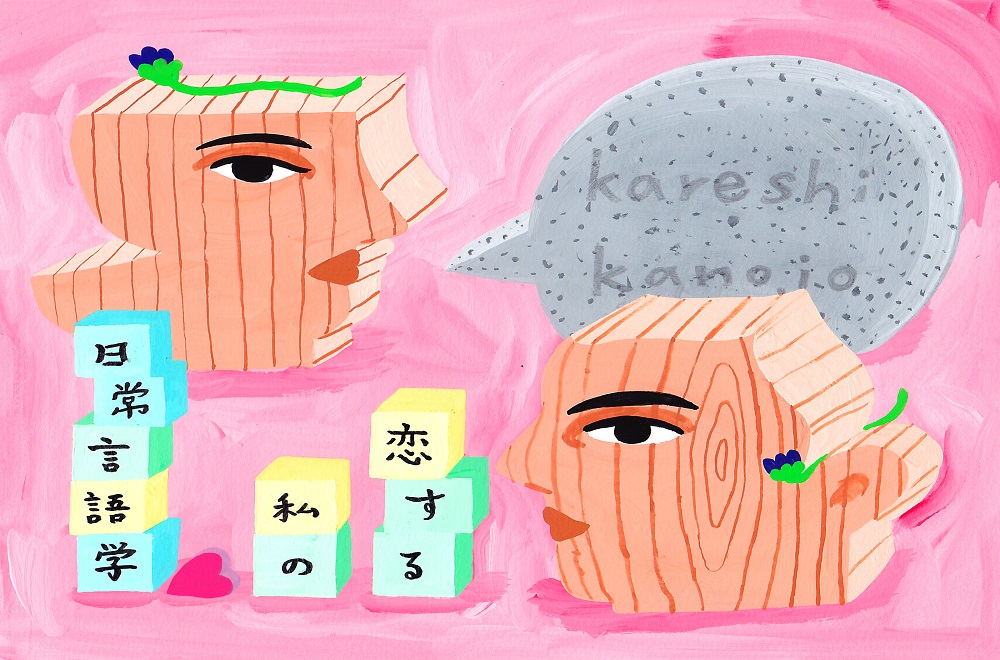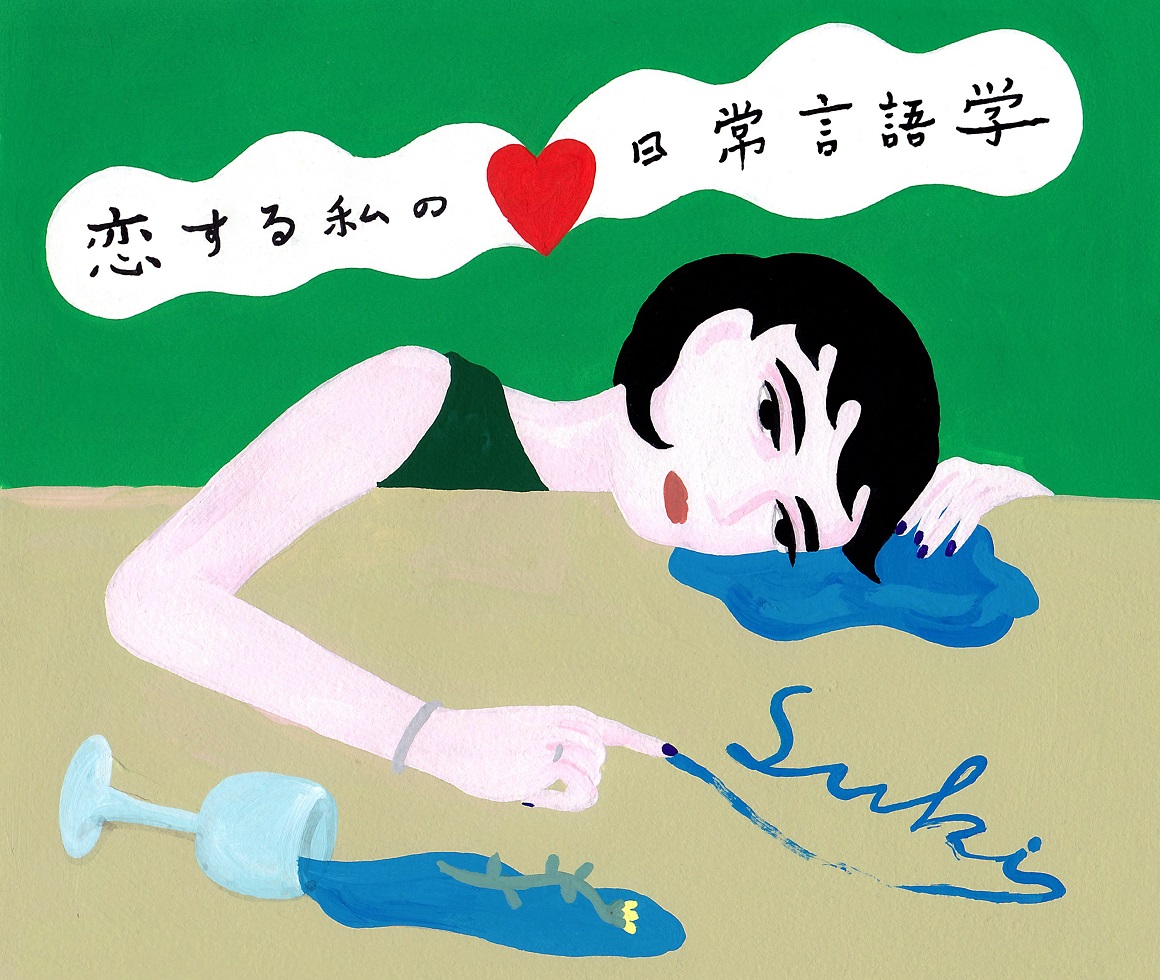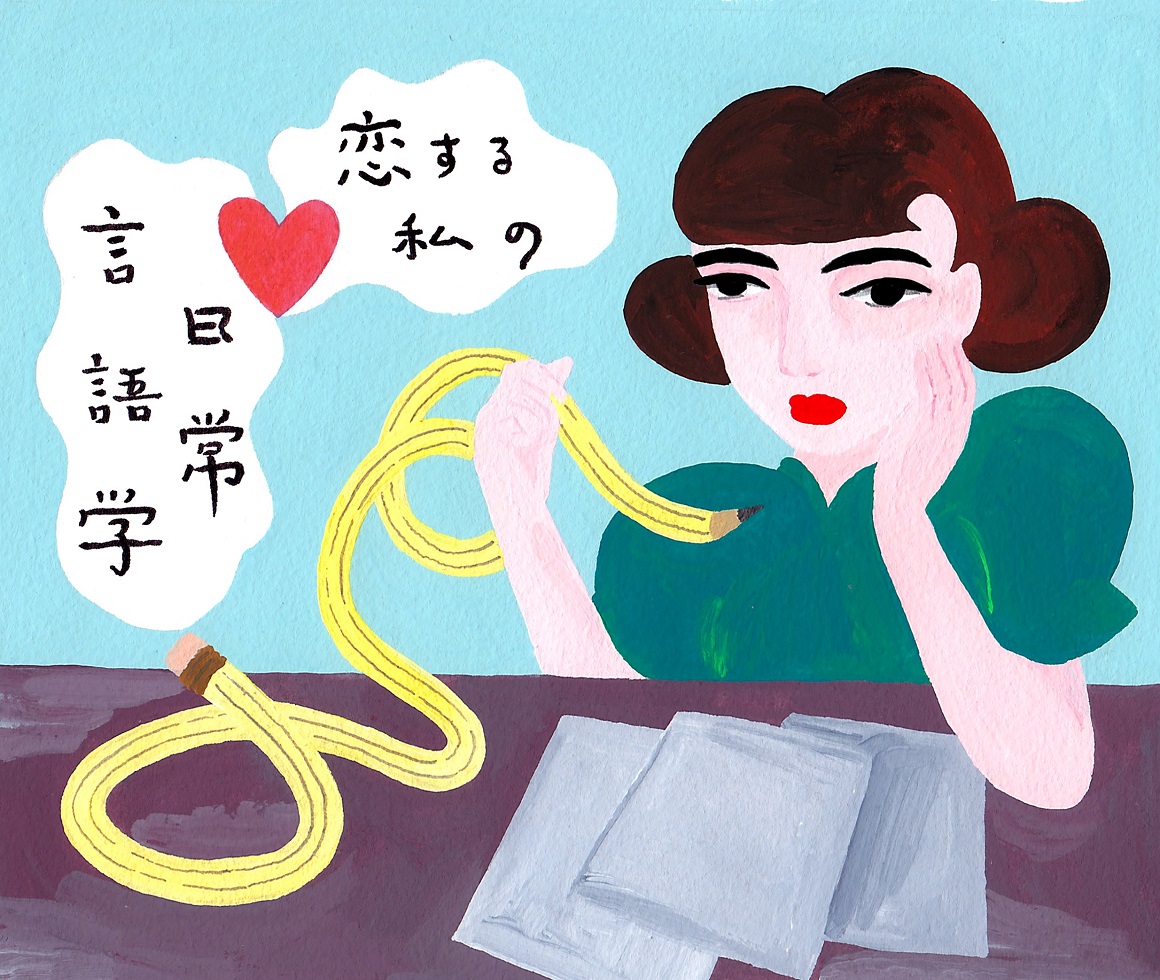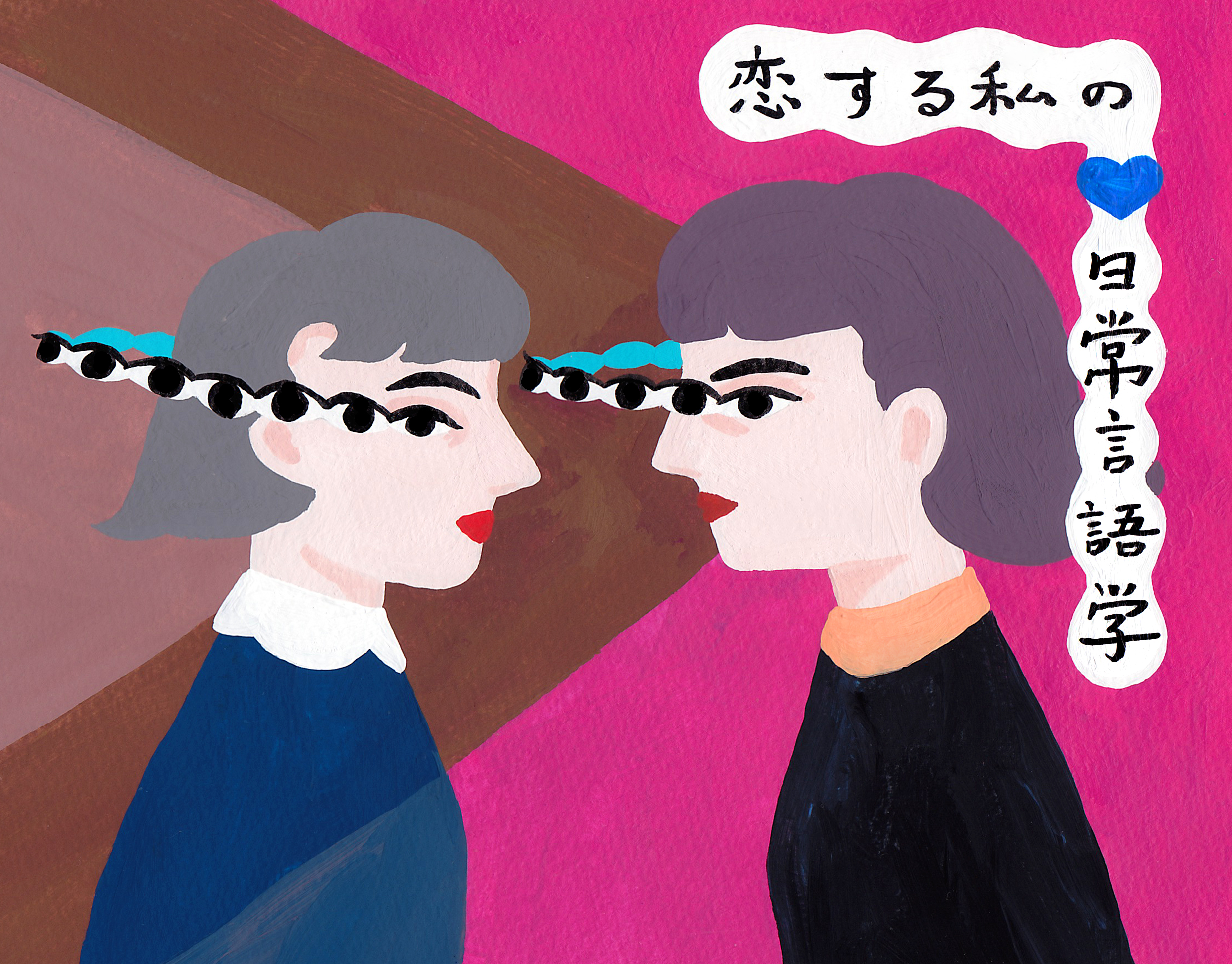
vol. 3
Empathy just might be what your relationship urgently needs
Ordinary Language School for Lovers is a column on the theme of love and language. The Ordinary Language philosophy school was created by a group of scholars at Oxford University. According to the Encyclopedia Nipponica, “they followed a methodology that considered the analysis of ordinary language to be the central goal of philosophy.” In this ongoing column inspired by that school of thought, Takayuki Kiyota and Tomoko Ogawa discuss a wide range of issues related to the topic of love and romance.
Kiyota has listened to countless stories about love and romance as the founding member of Momoyama Shoji, an organization that lends an ear to people who want to talk with someone about their love life. Kiyota and other members of Momoyama Shoji then draw on those stories to write columns, create radio shows, and produce other media that explore issues like romance and gender. Ogawa is a film critic who co-wrote Everyone’s Top 100 Romance Films, and she is also writer who specializes in listening to the stories that people tell.
Do you have trouble communicating with that special someone? Or do you and with your romantic partner talk past each other? It’s possible that your choice of words might be the root of the problem.
What does it mean to “walk a mile in someone else’s shoes”?
Takayuki Kiyota (TK): This installment’s theme is “empathy,” which is a loan word from English. Not all Japanese speakers are familiar with this word, so I’m sure that right off the bat some people reading the original Japanese version of this column are already thinking, “Well, what does that mean?” “Empathy” is a key word that both of us are really passionate about at the moment.
Tomoko Ogawa (TO): That’s right. The English word “empathy” is often translated into Japanese as “kyoukan” (共感), which is also used as a translation for “sympathy.” We’ll get into the details of how “empathy” and “sympathy” differ later. In any case, I wanted to discuss “empathy” because of a book I read, I Am Yellow and White and a Little Bit Blue by Mikako Brady.
TK: I also read it, on your recommendation. I was so bowled over by it that once the book was over all I could do was just sit there, motionless, for a long while. Mikako Brady lives in England, and the book is a series of essays that she wrote about her middle school aged son. The central theme that flows throughout entire book is “empathy.”
TO: Brady’s son is mixed race, with an Irish father and a Japanese mother. Also, both his peers and the adults in his life come from a wide range of diverse backgrounds. The book depicts the conflicts and uncertainties that her son comes face to face with in a multicultural society, which is made up of a mixture of people from different racial backgrounds, religious faiths, ideologies, family backgrounds, regional origins, and economic status. Her son’s approach to navigating a multicultural world is extremely impressive, and I was constantly learning something new.
TK: I was shocked to discover that a middle school student like him could even be real. He just never stops thinking. He’s always using his head and asking questions: “Why is it like this?” “What does that mean?” “How did I feel about that?” “What are they thinking about?” I got the sense that these questions are definitely not just academic for him. Rather, they’re the visceral struggles he goes through as he navigates how to live alongside people who are different from him in a multicultural society.
TO: I think his experience as a person who exists between two worlds is a big factor for him. In England he’s treated as an Asian, but when he goes to Japan he’s seen as a foreigner. He faces blatant discrimination as an outsider, but, on the other hand, at one point an older Chinese student stands up for him out of a sense of solidarity as a fellow Asian. But both of these situations make him feel uneasy in their own way. He wonders, “Why am I discriminated against just for being Asian? But, also, why would someone stand up for me just because they’re also Asian?”
TK: The way that he agonizes over these issues until he gives himself a headache is remarkable. The title I Am Yellow and White and a Little Bit Blue comes from a phrase that Brady found scribbled in one of her son’s notebooks. I feel like the book’s essence is contained in the phrase “a little bit blue.”
TO: We could talk about the book forever, but let’s return to the topic of “empathy.” It’s a word that comes up often in conversations between Brady and her son, Ken. One of Ken’s final exams included the question, “What is empathy?” Her son wrote, “Walking a mile in someone else’s shoes.” You and I have been talking about that phrase all the time recently. It started this winter, when we were both floored by the play Walking in Your Shoes by the theatre group IIHENJI. So, the moment I saw Ken’s answer to that question, it felt like everything finally clicked into place for me.
TK: Absolutely. I also read that and thought, “Yes!!!” (Laughs.)
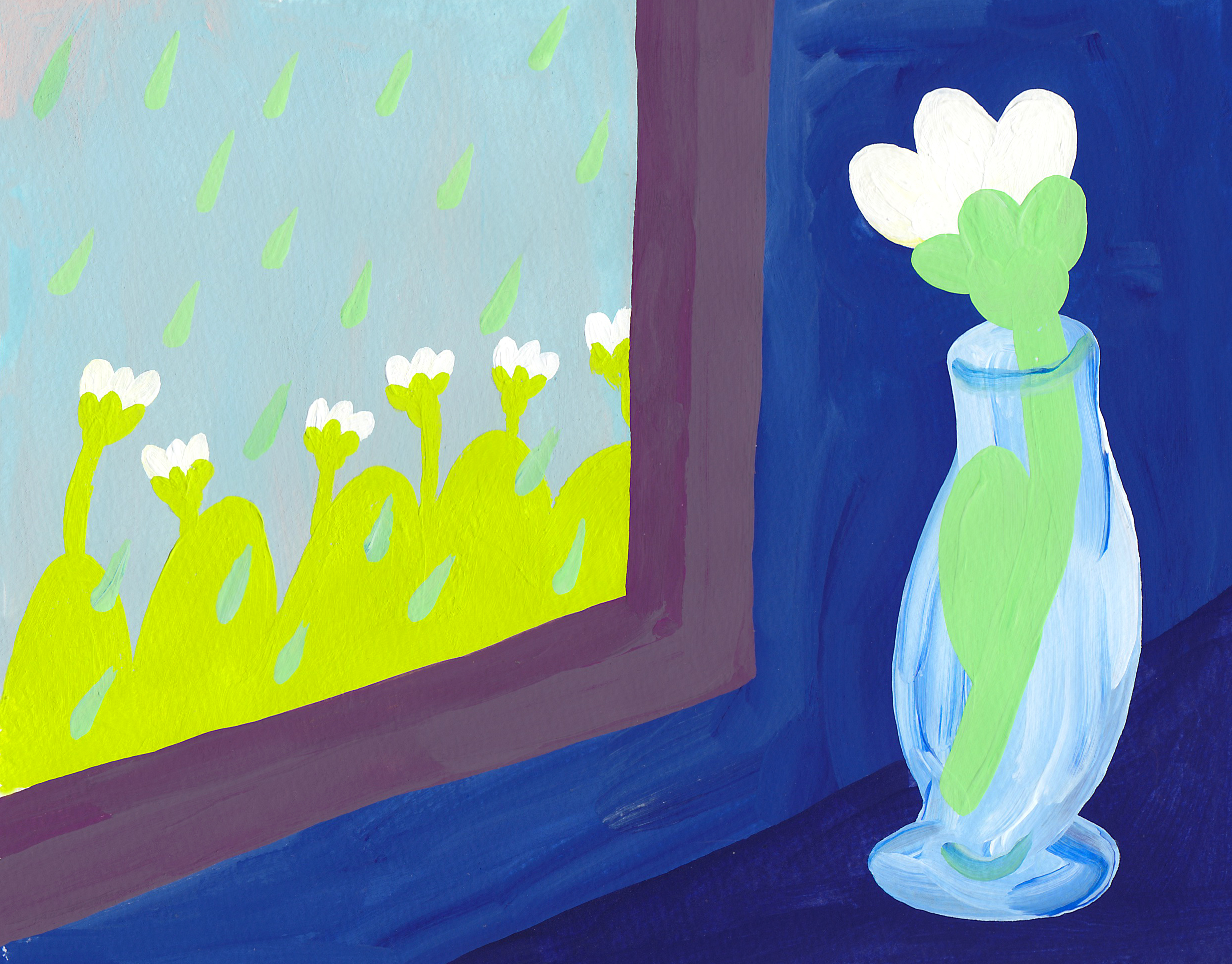
The illusion of two becoming one
TK: Around the same time, by chance I happened to also be reading Empathy: Why It Matters and How to Get It by Roman Krznaric. That book defines empathy as “the art of stepping imaginatively into the shoes of another person, understanding their feelings and perspectives, and using that understanding to guide your actions.”
TO: The phrase “stepping into another person’s shoes” comes from English. It’s an idiom used to refer to imagining another person’s perspective or situation. What I think is interesting is that, as Brady explains in her book, empathy is the skill of understanding another person’s emotions or experiences.
TK: As we mentioned earlier, the English word for “empathy” is often translated into Japanese as “kyoukan.” This translation tends to conjure an image of “sharing the same feelings as someone else,” but that’s really more like the English word “sympathy.” If you look up “sympathy” in a dictionary, you get meanings like “feeling sorry for someone” or “the act of expressing support for or agreement with a thought, philosophy, or organization.” There are some similarities, but “sympathy” and “empathy” are quite different. I’m going to quote a passage from Brady’s book that demonstrates this succinctly.
“In other words, sympathy is a feeling that is directed toward someone in a bad situation, someone struggling with a problem, or some group of people who have opinions similar to your own. It is natural and effortless. But empathy is something else entirely. It is the ability to imagine what people are thinking, even when they do not share your beliefs and principles, even when the situation they are in does not lead you to feel bad for them. You might even say that sympathy is an emotional state, while empathy is intellectual labor.”
TO: In other words, empathy is the act of imagining, “How does this person see the world?” It’s when you make a sincere effort to understand someone, even if you can’t agree with their perspective.
TK: A light bulb went off in my head when I read Brady’s incisive observation that empathy (1) takes effort, (2) is a skill, and (3) is intellectual labor. She is absolutely, positively correct, and I think that this point is essential in matters of romance. There was a scene in that play we saw by IIHENJI that really drove this point home, right? I’m talking about the scene where the couple bumps into each other.
TO: The boyfriend in the couple is huge, and he accidentally bumps right into his petite girlfriend on the street. This makes her feel sad, because he didn’t even notice that she existed. So, she tells him how frustrated it made her feel. Her boyfriend is kind and consoles her, but my reading of the scene is that he doesn’t truly understand her feelings. She felt like this was an assault on her worth as a human being, due to both her gender and her petite physique. In a state of shock, all of a sudden she puts on her boyfriend’s enormous shoes and clops off. Then, her boyfriend puts on the tiny high-heels she left behind and chases after her. At that moment, for the first time, he truly and viscerally understands her perspective on the world.
TK: Yeah, that’s the scene. It truly illustrated the play’s title, Walking in Your Shoes. I think that there’s an aspect of romance where some people are seeking out the illusion of two becoming one, a kind of relationship where boundaries dissolve and two people merge together. But, in reality, I think romance is more like cross-cultural exchange. You are always two separate people, with different values, experiences, and customs.
TO: I see what you mean. Of course, you often do get special treatment from a romantic partner. You start to think that you do understand them, and you convince yourself that they truly understand you. And there’s a tendency to feel like they’ll let you be a little bit selfish. But, in the end, that’s an illusion. I think that what romance really needs is to begin from the assumption that no matter how close your relationship is, you are always separate people. So, total mutual understanding is impossible. But, nonetheless, you make an effort to learn more about them, and you make a habit of trying to understand them. And that’s what it means to practice empathy.
How to be equal in our differences
TK: Because empathy is a skill, developing it requires experience, knowledge, and practice. And maybe natural aptitude plays a role. Mikako Brady’s son had to answer the question “What is empathy?” on an exam for his citizenship education class. So, in England, there are apparently programs to foster that skill as part of their formal education. I don’t think it’s the case that empathy is simple, just as long as you make a conscious effort. But I do think that having inculcated a sense of empathy is extremely helpful in matters of love and romance.
TO: Definitely. I’m someone who thinks that language is a necessary part of romance. I think that sex is a primitive form of communication, and I think it’s even possible to express your emotions without mediating them through language. However, we’re not mating together like animals. We live our lives as individuals, and gender is only one of the many and diverse characteristics that make up who we are. So, ultimately, we must speak to each other in order to communicate.
TK: Listening to your partner seems like a simple thing to do, but I think it’s quite complicated. It takes interpretation and imagination to get an accurate understanding of what they’re saying. If you don’t have sufficient knowledge, there could be parts you just can’t understand. And it takes self-control to resist the urge to jump to conclusions. And maybe you even need to be a skilled at asking questions in order to offer the speaker support. I think that this is probably part of the skill of empathy.
TO: In my fifth year of elementary school, my mother had to go to America as part of her job, and I went along with her. That was the first time I experienced how frustrating it is when you don’t have the language ability to express yourself. Whenever I ordered something in a restaurant, I wanted to do it for myself, without relying on my mother. So, I did my best to speak English. But they didn’t understand me, not even when it was just something simple like ordering fries. I was so frustrated that I cried. I was always shy and quiet. So, whenever I tried to say anything, the other person always replied, “Huh?” This always felt like a harsh rejection, although I imagine they were probably just speaking in their normal tone of voice. It really hurt my feelings. Even now, I have a vivid memory of how that felt. Thinking back on it, that experience might be when my interest in the issue of language first began to bloom. In any case, what I think is that empathy is more than just being considerate.
TK: What do you mean by that?
TO: So, for example, at a company that values diversity, it’s of course important that you avoid causing anyone harm. And you don’t want to make anyone feel bad. But, at the same time, if that sense of caution leads to an excessively defensive environment, I have to wonder if that’s really fostering empathy. I think that maybe that’s not quite right. In an ideal situation, everyone is different, and we all exist side-by-side, as equals in our differences, without criticism or judgment. I think empathy is what’s necessary to make that happen. This is why empathy can be such a thorny subject. (Laughs.)
TK: I remember that, in Mikako Brady’s book, she told her son, “Dealing with diversity can be such a hassle that you get fed up with it. It can be a real pain the neck. But it makes you less ignorant, so it’s worth it.” Even a romantic partner is ultimately a separate person. So, basically, complete mutual understanding will be impossible, more often than not. Our inspiration to start this column came from our interest in exactly this problem—even when people use the same words, they don’t necessarily mean the same thing.
TO: I think what’s amazing about Brady is that she doesn’t assume that she fully understands her son. She makes insightful observations about him, but she is aware that even a mother and her very own son are still separate people. I felt like her inquisitive outlook was brimming with motherly love.
TK: There’s always a place for empathy, even in the closest of relationships. Well, this is an arbitrary place to end this installment, but what I hope comes across is that your love life just might go a little more smoothly if you take that message about empathy to heart. Of course, it’s true that sometimes you just want to say, “Stop analyzing everything and hold me tight!” But that’s what makes relationships so complicated.
TO: At the same time, “Shut up and hug me!” is also an old trick that lets you avoid facing your real problems. But that’s a topic for another day. (Laughs.)
Contributors

Takayuki Kiyota
Writer
Founding member of Momoyama Shoji, an organization that collects people’s stories about their love life
Born 1980, in Tokyo. Graduate of Waseda University Department of Literature. Has conducted interviews with over 1200 people on the topic of love and relationships. Examines the theme of love and gender in written work, on radio programs, and in other formats. Major publications include Everything About Romance Except How to Be Lucky at Love and I Thought You Wanted Me to Do That!: An Introduction to Failure for Men. His most recent work, Farewell to Guys Like Us, was published in July, 2020.
Illustration by Emi Ozaki.
https://twitter.com/momoyama_radio

Tomoko Ogawa
Writer
Born 1982, in Tokyo. Graduate of Sophia University Department of Comparative Literature. Interviewer, film critic, columnist, and translator. Publications include Everyone’s Top 100 Romance Films.
https://www.instagram.com/tomokes216
https://twitter.com/tometomato
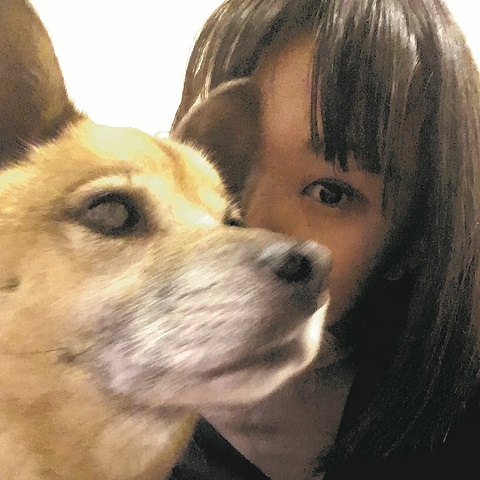
Momoko Nakamura
Illustrator
Born 1991, in Tokyo. Graduate of Kurasawa Design School Department of Visual Design. Worked at a graphic design company, then began a career as an illustrator. Has done illustration work across a number of fields and for a wide variety of clients including book design, magazines, music, clothing brands, and textiles. Publications include HEAVEN, a book of collected illustrations.
https://www.instagram.com/nakamuramomoko_ill/



